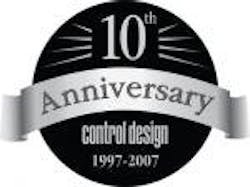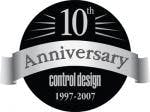Insight from issues past
Certainly, the information technology (IT) world already is having a significant impact. But industrial automation (IA) isnt about word processing, spreadsheets, or missing a payroll. Faulty control systems can kill people. In IA, the word crash can have a different meaning. The key is the application of all the technologies, including those from IT, to create an effective control system. This lands us squarely on the issue of system responsibility. -- Al Vitale, principal, Automation Marketing Strategies ["Open Systems? Who You Gonna Call?" Aug/Sept 98]
Control components and systems are critical parts of operating plant machinery. While modern technology has improved them, needless complexity has robbed us of the profits of much of the available improvements. Keeping simplicity in mind makes systems more reliable. Reliability equals profits just as much as new capabilities. -- Andrew Sloley, chemical engineer, Process Consulting Services ["A Plea for Simplicity," Dec 98/Jan 99 ]
Open architecture is one of the most misunderstood, ill-defined, and over-hyped concepts in factory automation today...The poor customerthe manufacturing manager responsible for real productionis caught in a crossfire of buzzwords and acronyms. -- Joe Campbell, marketing VP, Adept Technology ["Open Architecture: Hype and Fiction," Aug/Sept 00]
As machine builders well know, these traditional safety systems, although reliable, havent kept pace with technology developments in the automation world. -- Dave Quebbbemann, president of ODVA ["Interoperability and Safety Issues Engage ODVA," Oct/Nov 01]
When an operator sees the e-stop button as an obstacle to doing his job, he will actively try to defeat the safety, placing him in an unacceptable position of risk. -- Jeff Fryman, standards development director,
Robotic Industries Assn. ["Machinery Safeguarding Design," June/July 02]
There are multiple reasons for our second-class engineering status. To start with, our universities offer ME or ChE degrees, but not many offer degrees in I&C engineering. -- Béla Lipták, process control consultant [Aug 02]
The same automation components (same manufacturer, as well) that we use in Europe cost at least 50% less than the exact same components we use in North America. -- Doug Bartow, strategic sourcing manager for electrical and electronics, FMC Technologies ["Purchasing as a Competitive Advantage," Oct/Nov 02]
I dont really care about standards, said a fellow I met at an OMAC meeting. All I want is a line that is economical, easy to run, and easy to fix when it breaks. -- Pete Squires, controls VP, Schneider Packaging Equipment ["Building Partnerships Promotes Profitability," Sept 03]
In the past, having a relationship with a supplier often meant unspoken agreements through an old boy network, and shady deals on the golf course that rarely made good business sense. -- Alan Metelsky, controls engineers group leader, Gleason Works ["It's All About Insight," Aug 05]


